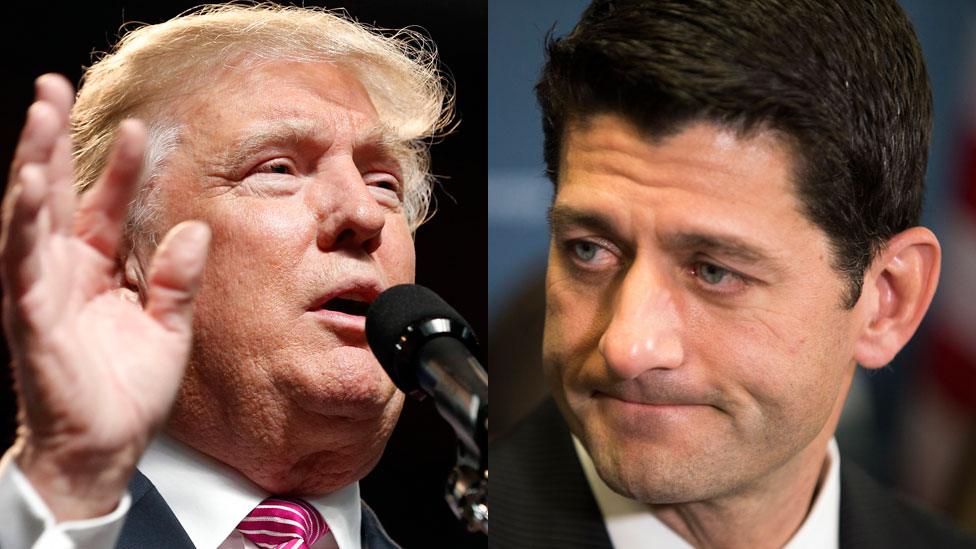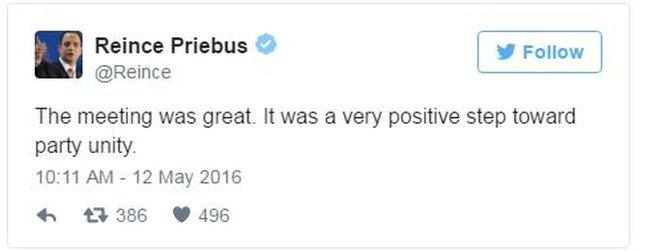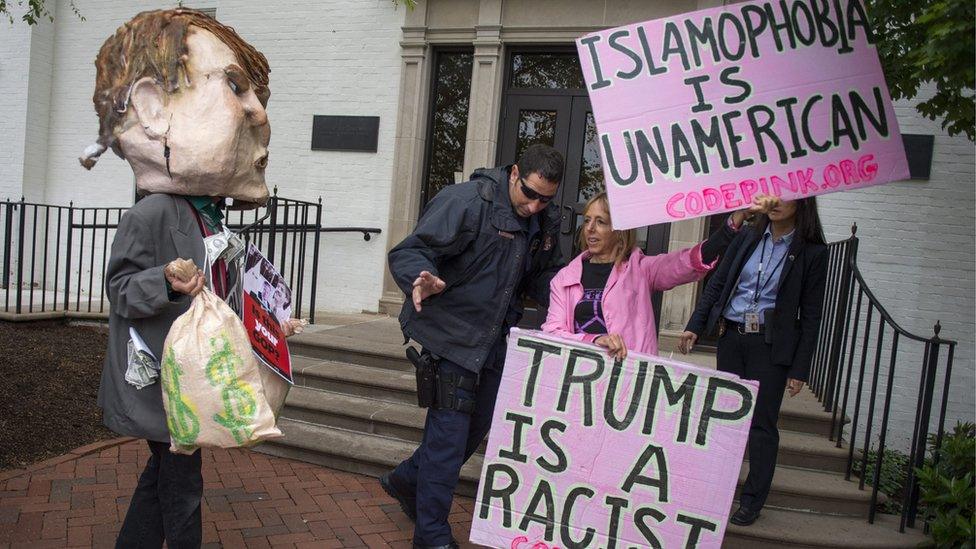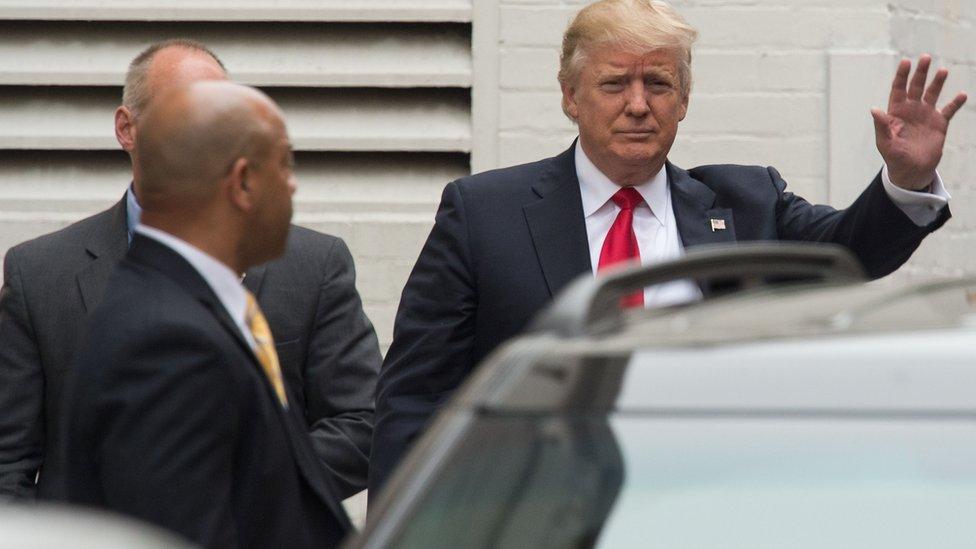US election: Trump and Ryan 'totally committed' to party unity
- Published

Donald Trump and House Speaker Paul Ryan have said they are "totally committed" to party unity in a statement following their meeting.
The two are trying to find common ground after Mr Ryan said he could not endorse the presumptive Republican nominee.
He has said the businessman lacked conservative principles.
"We had a great conversation this morning," the two wrote in a joint statement.
"While we were honest about our few differences, we recognise that there are also many important areas of common ground."
They said they would be having "additional discussions" but think they can unify the party and win the election.
At a press conference following the meeting, Mr Ryan said he was "very encouraged" by what he heard from Mr Trump.
Trump v Paul Ryan - the split explained
How Trump captures the White House
Trump softens stance on Muslim ban
Mr Trump arrived for the meeting at the Republican National Committee (RNC) headquarters in Washington amid protesters brandishing placards.

Analysis - Anthony Zurcher, BBC News, Washington
Paul Ryan sounds like a man trying to make peace with his shotgun marriage. Sure, the circumstances are unfortunate, but maybe life together won't be that bad.
The House speaker, who once condemned Trump's proposed Muslim ban as "not conservatism", now says there are "core principles" of conservatism that tie them together. They both love the Constitution, it seems, and they're all about the separation of powers between the branches of government.
Beyond that? Who knows. Mr Ryan declined to go into details during his Thursday press conference, instead talking about the processes being started, seeds being planted and differences being bridged.
It was not the endorsement, full-throated or otherwise, that Mr Trump desires, but it was a first step toward the reconciliation of a party that desperately wants to win back the White House in November.
If Mr Ryan eventually makes peace with what he called a "whole new wing" of the Republican Party that Mr Trump represents, this desire for power - for a prize that has been denied Republicans for two straight presidential elections - will be the driving force behind it.

Afterwards, RNC chairman Reince Priebus, who mediated the talks in his office, said it was a success.


Trump says his Muslim ban is needed to protect the US
In December 2015, Mr Ryan harshly criticised Mr Trump's proposal to ban Muslims from entering the US.
He said it was "not what this party stands for and more importantly it's not what this country stands for".
But on Wednesday, Mr Trump appeared to soften, saying it was "just a suggestion".
Mr Ryan, who ran as 2012 Republican presidential nominee Mitt Romney's vice president, clashes with Mr Trump on many issues, including religious freedom and trade.

Mr Trump has said he would be fine without Mr Ryan's support
He has remained popular on Capitol Hill, after being urged to take over as Speaker of the House of Representatives in the autumn.
Many who view him as a more electable figure than Mr Trump have urged him - in vain - to run for president.
But more Republicans are throwing their support behind Mr Trump, including Senate Majority Leader Mitch McConnell.
The New Yorker is one of the least politically experienced nominees in US history, having never held elected office.
That outsider status has appealed to voters who feel let down by Washington.
A recent Gallup Poll shows that two in three Republican-leaning voters view Mr Trump favourably.
But protests have plagued his campaign, with particular focus on his plan to build a wall on the Mexican border and deport 11 million undocumented immigrants.

Top Republicans divided over Trump
Supporting:
New Hampshire Senator Kelly Ayotte
Retired neurosurgeon Ben Carson
New Jersey Governor Chris Christie
Former Louisiana Governor Bobby Jindal
Senator Majority Leader Mitch McConnell
Nevada Governor Brian Sandoval
Wisconsin Governor Scott Walker
Former Texas Governor Rick Perry
Florida Senator Marco Rubio
Not supporting:
House Speaker Paul Ryan
Former Florida Governor Jeb Bush
Former President George H W Bush
Former President George W Bush
Former Massachusetts Governor Mitt Romney
Nebraska Senator Ben Sasse
Yet to comment:
Texas Senator Ted Cruz
Ohio Governor John Kasich
